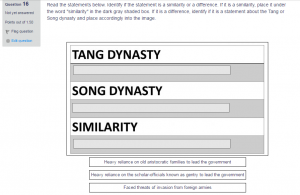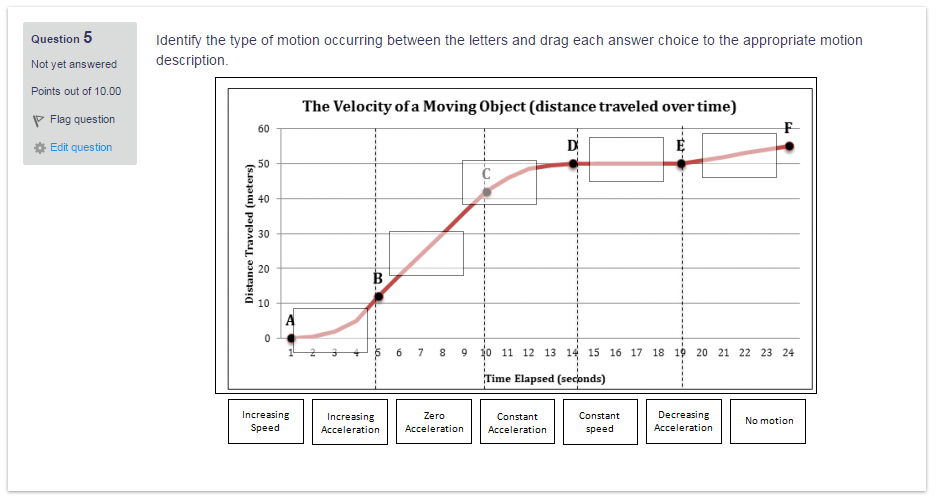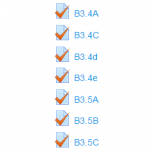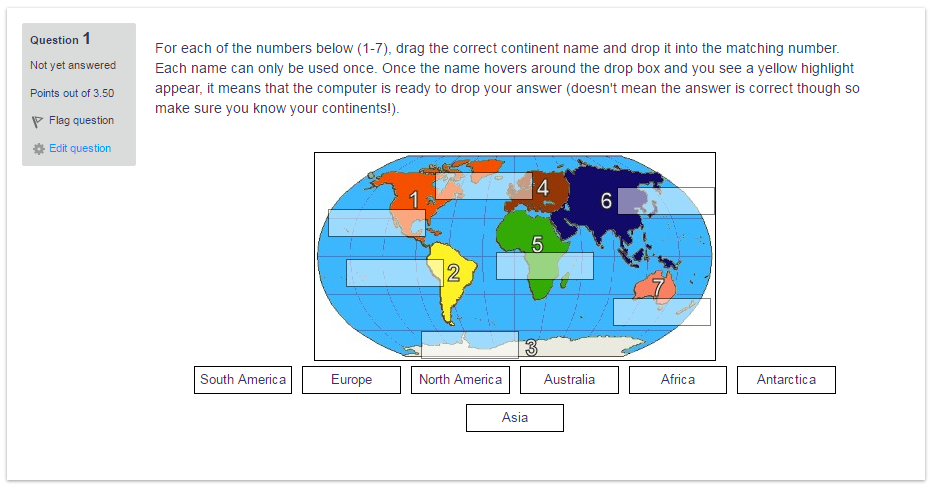Stop testing like it’s 1930: How Dearborn Teachers are changing assessment with Moodle
 It’s really tough to change education when our thinking is, um, well… 80 years behind. At a foundational level, we will always need to know what students know before we can effectively address their needs. The way we do so, given the available resources and technology, has to change.
It’s really tough to change education when our thinking is, um, well… 80 years behind. At a foundational level, we will always need to know what students know before we can effectively address their needs. The way we do so, given the available resources and technology, has to change.
There’s hope. In Dearborn, there are many teachers who are helping to shift from the old-school once-and-done, “I have to give them a grade” mindset of assessment to more innovative ways of gathering evidence of student learning, giving feedback, adjusting the assessment, and improving instruction.
Approaching authenticity
Let’s face it, a 20 question multiple-choice test just might not be the best way to gauge whether someone is proficient in a particular area. That’s not to mention the fact that we also just might be making kids hate the topic and hate learning in general because of the ways we assess them. (Check out The Dark History of the Multiple Choice Test)
Several teachers across the district are attempting to change this by incorporating more engaging forms of assessment, including click-and-drag items, video questions, questions with colorful diagrams and graphics that actually give students a chance at being interested in what they’re learning. (Even better: Dearborn’s ePortfolio platform is integrated with iLearn and provides opportunities for even more authentic assessment.)



Limitless opportunity
In an industry in which one of the underlying goals is opening doors to opportunity, it is surprising how often our doors open only one way and prevent re-entry. There’s no more blatant obstacle to opportunity than to limit someone to one chance to get it right. Let’s be honest, there are very few things in the world where you only get one shot at it. To argue that schools should model these relatively few instances is not viable.
In the past, it wasn’t reasonable to expect that a teacher would print out multiple copies of a test for each student. Much less was it reasonable to expect a teacher to keep grading a student’s attempts at the test over and over again until they got it right. But with the technology available to us with Moodle, a teacher can do no more than they’ve always done and yet provide infinite opportunity for students to get it.
Several teachers who use Moodle in the district have used Moodle’s capacity to allow multiple attempts (sometimes with a point penalty) and its availability to give students the time they need to achieve proficiency. Even better is when teachers build the necessary feedback into questions to allow students to repair their understanding while they take the assessment.
Give feedback NOW
There’s no time like present when it comes to helping students understand why they are correct or incorrect, and to give them feedback that will allow them to improve their understanding. Dearborn teachers who use Moodle have the opportunity to embed feedback right into the assessment and enable students to receive the feedback while they take the test, as opposed to waiting days for the teacher to get back to them, when they can no longer do anything about it and they care even less about it.
Focused assessment yields focused intervention
If we are serious about helping students learn, getting them the most actionable and direct feedback on their learning is crucial. Too often, however, our assessments have not been focused. They present students with a wide variety of topics, covering some standards more heavily than others, delivering items that may or may not yield valid conclusions about student understanding, and produce a highly subjective, relative, and downright meaningless grade.

Biology teachers at Edsel Ford High School recently began administering mini-quizzes in Moodle that directly address a particular standard. Each mini-quiz is comprised of 3 or 4 focused questions that give them a reliable picture of whether students have mastered the standards. Their gradebooks also reflect this, as each quiz corresponds to a 4-point grade in MIStar. Moodle’s compatibility with MIStar makes sending the grades over to the gradebook quick and efficient.
Most importantly, teachers can use the data from these mini-quizzes to prescribe laser-focused interventions that directly address deficiencies in student understanding. Moreover, students walk away thinking things like “I really need to learn more about B3.5B…” and can begin to focus their own interventions just by reminding themselves of what B3.5B involves.
Assess your own assessment
The assumption that our tests are flawless is also a concept whose time has passed. With the data that iLearn quizzes reveal, teachers have the tools to critically evaluate their own assessments for unfair questions and bias. A simple click on Results>Statistics yields a color-coded read-out of data for each question, highlighting in red questions that may need a second look based on data from the assessment.

There’s more to be done
This is a small representation of how teachers are changing the way we assess student understanding using Moodle. But there is WAY more to be done. Using a tool like Moodle provides a platform for change and opportunity, for authenticity and self-reflection, to change the way we do things in the classroom to make learning better for students. Let’s keep using Moodle as a vehicle for reform.
We’d love to hear from you! Feel free to post a comment in the space below.


